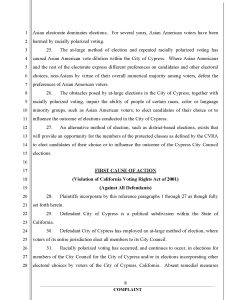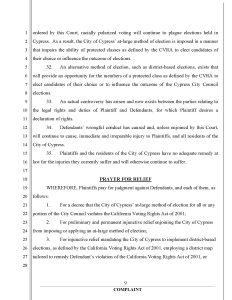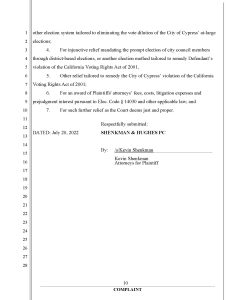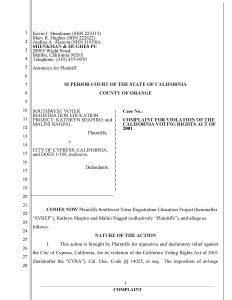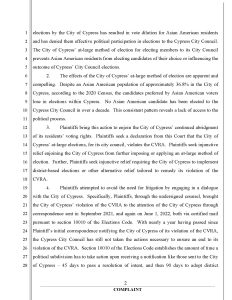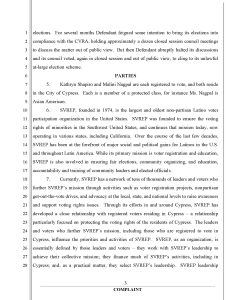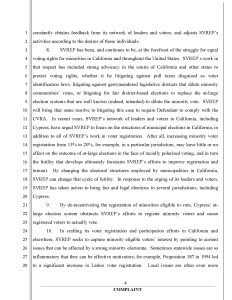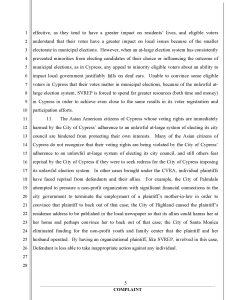
Breaking News
After the city council failed to discuss in public session the prospect of creating new voting districts throughout the city of Cypress for nine months, a lawsuit has been filed seeking “injunctive and declaratory” relief against the city for alleged violations of the California Voting Rights Act of 2001.
The lawsuit, if successful in court, could not only cost the city of Cypress millions of dollars, but would likely also prompt new elections once a verdict is reached in the case, according to Malibu attorney Kevin Shenkman.
His firm, Shenkman and Hughes, filed the suit in Superior Court Wednesday, July 20.
“The imposition of at-large elections by the City of Cypress has resulted in vote dilution for Asian American residents and has denied them effective political participation in elections to the Cypress City Council,” the lawsuit contends.
“The City of Cypress’ at-large method of election for electing members to its City Council prevents Asian American residents from electing candidates of their choice or influencing the outcome of Cypress’ City Council elections,” it said.
The lawsuit has been sent electronically to the Superior Court of the State of California. Shenkman said he expects court officials to review it and officially file it within 24 hours of its receipt.
Shenkman’s firm filed the suit on behalf of the Southwest Voter Education Registration Project and two Cypress residents, Kathryn Shapiro and Malini Nagpal, both of whom reside in and are registered to vote in Cypress, the lawsuit contends.
In general, the lawsuit seeks to force the city of Cypress to create voting districts within the city’s geographical boundaries rather than allowing the city’s current slate of five seats to be filled by qualified candidates able to run from anywhere in the city.
According to the lawsuit, more than 36 percent of the city’s residential population is of Asian American descent, yet the lawsuit alleges the city’s continued use of an at-large-based districting system violates the voting rights of citizens.
“The Asian American citizens of Cypress whose voting rights are immediately harmed by the City of Cypress’ adherence to an unlawful at-large system of electing its city council are hindered from protecting their own interests,” the lawsuit contends.
“Many of the Asian citizens of Cypress do not recognize that their voting rights are being violated by the City of Cypress’ adherence to an unlawful at-large system of electing its city council, and still others fear reprisal by the City of Cypress if they were to seek redress for the City of Cypress imposing its unlawful election system,” it claims.
Shenkman said he expects the entire process could take up to 18 months, saying the Superior Court generally sets trials about 12 months after the first status conference of the respective parties.
Moreover, Shenkman said, in cases like Cypress, when the Council makes no willful effort to comply, Superior Court judges have stepped in to force new elections within the respective new districts soon after the cases are settled.
He points to cases in places like Palmdale, and Highlands, where judges have taken action to force Council members to re-run within newly created districts soon after settling those cases.
“If I were running for Council this fall (in Cypress), I wouldn’t get too comfortable in the seat,” he said earlier. “I think it is just a question of when, not if,” Shenkman said today.
He expects whatever judge will hear the case to set a “Case Management Conference” within two months, and provide a given period of approximately six months for filings.
“That’s generally when they will set a date for trial,” said Shenkman.
The ENE has reached out to Fred Galante, legal counsel for the City of Cypress, and we will update the story when we receive a response.
Watch for comprehensive coverage in next week’s ENE.


